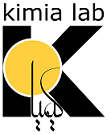
JOIN us for free, half-day mini-symposium on Artificial Intelligence (AI) in cancer imaging.
OBJECTIVES
The audience will gain knowledge on intelligent digital imaging workflows, machine learning (ML) tools, and artificial intelligence (AI) analysis that can assist pathologists and support researchers in integrating multilayered image data and machine learning algorithms into cancer diagnostic decision-making.
EVENT DETAILS
Our keynote speakers include Dr. Hamid Tizhoosh, Professor, University of Waterloo, Ontario, and Director of the Knowledge Inference in Medical Image Analysis (KIMIA) Lab; Dr. Phedias Diamandis, Neuropathologist and Clinician Scientist at UHN and Princess Margaret Cancer Centre, and; Dr. Trevor McKee, STTARR imaging facilities, UHN.
The symposium will provide opportunities for researchers, students, and health professionals to:
- meet experts from digital imaging, machine learning, and pathology;
- participate in discussion on how future imaging demands can be met via integration of pathology, imaging and bioinformatics;
- learn more on how AI and ML tools can be conceptualized, synergized, and used in image based clinical tasks for maximizing the pathological image data output.
Date And Time
Fri, June 21, 2019
1:00 PM – 4:30 PM EDT
Location
Ontario Institute for Cancer Research
661 University Avenue
West Tower, Suite 510
Toronto, ON M5G0A3
Dr. Tizhooshis a Professor in the Faculty of Engineering at University of Waterloo. He is a Sirector of the Knowledge Inference in Medical Image Analysis Lab in the Engineering Faculty at the University of Waterloo. He is also a member of Waterloo AI Institute, and a faculty affiliate to the Vector Institute. His research activities include artificial intelligence, computer vision and medical imaging. He has developed algorithms for medical image filtering, segmentation and search. He is the author of many books and more than 150 scientific articles. Dr. Tizhoosh has extensive experience in working with industry and holds several patents. He is a member of the advisory board for Huron Digital Pathology, Canada.
Dr. Phedias Diamandis is a Neuropathologist and Clinician Scientist at University Health Network’s (UHN) Princess Margaret Cancer Centre. His research focuses on using chemical biology, deep learning and mass spectrometry-based proteomics to resolve phenotype-level heterogeneity in brain glioblastomas. His team is utilizing artificial intelligence and mass spectrometry to define global morphometric and proteomic patterns defining normal development, health maintenance and disease. His group applies machine learning approaches to interrogate datasets and resolve inter- and intra-patient molecular and phenotypic heterogeneity. These machine learning tools can guide more focused validation studies into mechanisms driving neurological disorders.
Dr. Trevor McKee has a PhD from MIT in biological engineering and has 20 years of experience in preclinical imaging, including the development of new algorithms for image analysis. At the STTARR Imaging Facility, Dr. McKee leads a team of algorithm developers to provide image analysis as a service to academic laboratories and pharmaceutical companies, including ongoing analysis for clinical trial specimens. Dr. McKee has worked on developing relationships with pharmaceutical companies to help bridge the translational divide and bring ideas from basic science, through translation in preclinical models at STTARR, and through clinical trials for drugs and imaging agents.
AGENDA
1-2 p.m.
How to go digital in pathology
Dr. H. Tizhoosh, KIMIA Lab, University of Waterloo
Introduction to the Digital pathology, a rapidly evolving and essential technology, with specific support for tissue-based research, drug development and the practice of human pathology.
2–2:15 p.m.
Artificial Intelligence (AI) algorithms in digital pathology: an overview
Dr. Morteza Babaie and Amir Safarpour, KIMIA Lab, University of Waterloo
Foundations and approaches in developing computerized algorithms for high dimensional data and image analysis for predicting disease outcome. How AI uses algorithms to represent data, classify data, and search for similar instances, either in supervised or unsupervised approaches.
2:15–2:30 p.m.
Image search and diagnosis: a first validation using TCGA data
Shivam Kalra, KIMIA Lab, University of Waterloo
An overview, strategies and applications for working on deep networks, metric learning, autoencoders, and searching in large archives of pathology images.
2:30–3:30 p.m.
Understanding Machine Engineered Reasoning in Pathology
Dr. Phedias Diamandis, MD, PhD, FRCPC
A pathologist perspective on integration of artificial intelligence and machine learning into diagnostic pathology. Examples of how computer-aided image analysis can be used in various tasks in cancer imaging, e.g. detection, diagnosis, prognosis, and response to therapy. Learn how digital tools can be applied to resolve phenotypic heterogeneity in different glioblastoma niches, empower data mining with patient characteristics to build novel predictive indicators for tumor detection, monitoring and therapy.
3:30–4:30 p.m.
To use AI or not? Machine Learning in Practice: clinical trial and translational research applications
Dr. Trevor McKee, PhD, STTARR Imaging facilities
Principles underlying the development of algorithms for the segmentation analysis of histopathology images. Examples of how semi-automated cell-counting strategies on single and multiplexed stained tissue sections can be used for obtaining information on cell markers in relation to cell phenotypes and spatial arrangements. Examples from quantitative analysis on clinical trial specimens will be used to illustrate the current application of machine learning methods in a high-throughput core facility environment.
